Andrew Strauss: My England team would beat the Bazballers
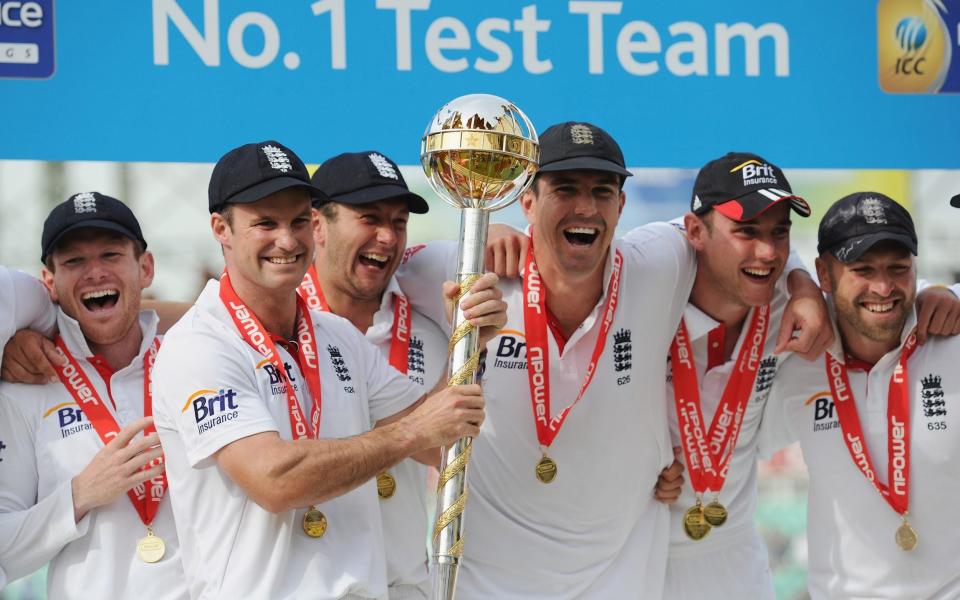
“Oh, you lazy git.” With these words, Sir Andrew Strauss admonishes himself for missing a backhand volley on the padel court.
We are at the plush Hurlingham Club in Fulham. Strauss is not a member, but is preparing for his newest venture: The Alfred Dunhill Padel Classic. The competition will feature current and former athletes – including Strauss, Michael Vaughan, Jimmy Anderson, Andriy Shevchenko and Bryan Habana – playing alongside members of the public.
Unfortunately for Strauss, some of his training entails sharing a padel court with me. Playing against two professionals, no matter how gently they are going, the results are predictable. We are thrashed, despite some powerful left-handed smashes from Strauss, often celebrated with a punch of the air.
“Come on partner,” he encourages me as we try in vain to fight our way back into the match. Aged 47, and 12 years after the end of his professional cricket career, Strauss’s competitive spirit remains undimmed.
“I just hate losing, I really do – pathetic, really,” he says. “It’s important for me to have that competitive release. I think when you finish playing sport, life can be a little bit kind of bland. And so to have those opportunities to get the adrenaline going a bit and to put it on the line is fantastic.”
Strauss is an accomplished tennis player – he is a member at the All-England Lawn Tennis Club – which has helped his first forays into padel. “A lot of work to do. But it’s actually a great challenge to learn a new sport, even at my advanced age,” Strauss says.
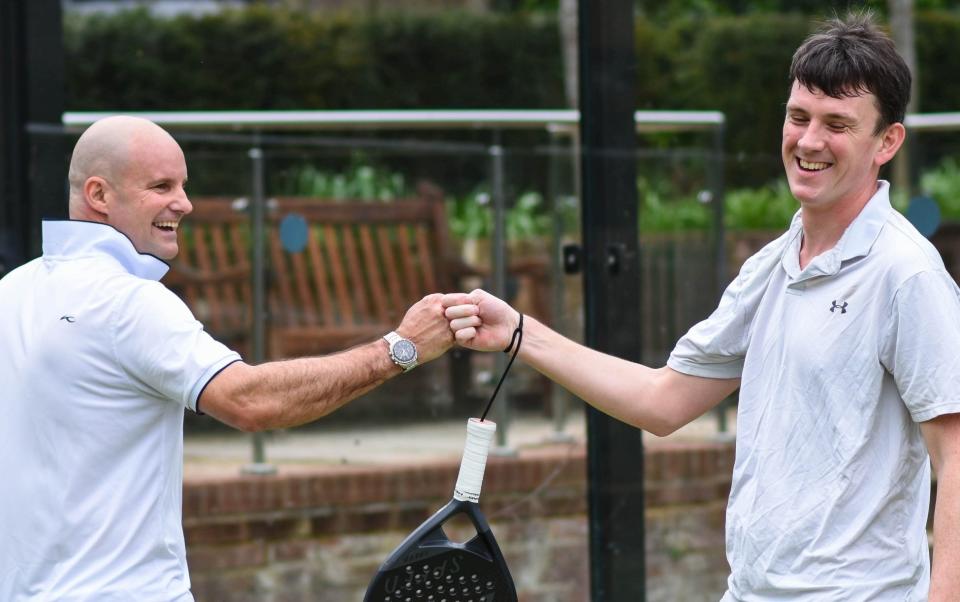
“You gain a lot of motivation from losing. If you lose, you want to go and do some practice and improve and sort of work out where you’ve gone wrong. That was always my approach to my career as well: try to never make the same mistake twice.”
Perhaps Strauss’s competitiveness is also detectable in his assessment of how his England side would fare against today’s Bazballers. From 2009-2011, Strauss’s team won six consecutive home Test series, drew away with a fine South Africa side, won the Ashes away, and then whitewashed India 4-0 to become world No 1. Understatedly, Strauss is confident that his team would win against Ben Stokes and co.
“If you look at the teams side by side, when we were at our best – we had probably more consistent batting right the way through the batting line-up. And obviously, the spin bowler is the big difference. Jack Leach has done an excellent job, but he’s not Graeme Swann.”
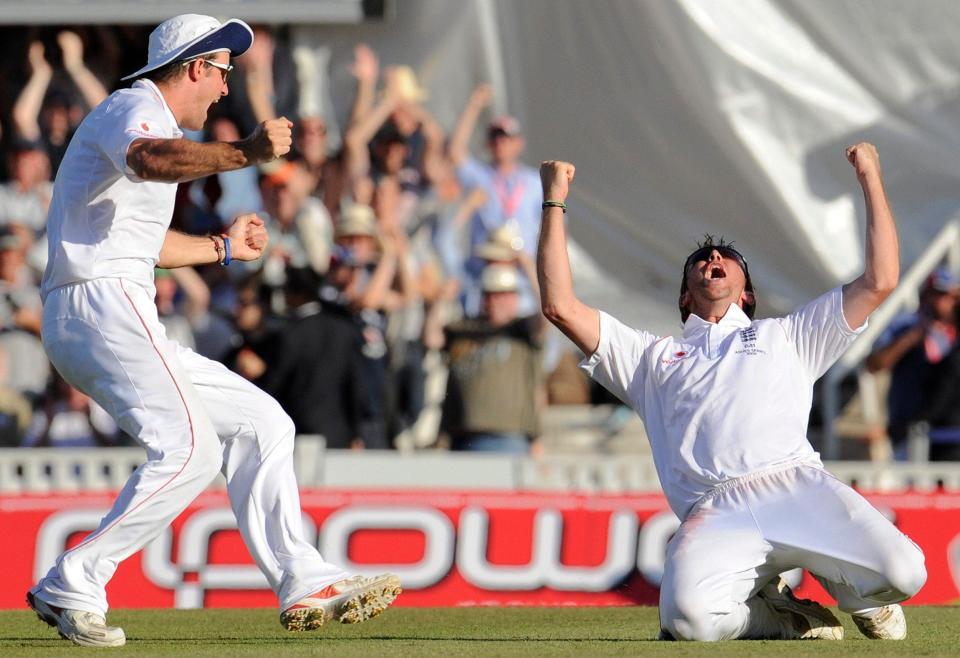
Asked whether he would indeed back his 2011 vintage, Strauss smiles. “Hey, the game moves forward so you never have the opportunity to play those fixtures.”
For all the recent deeds of Ben Stokes’s side, Strauss’s team have a formidable case. They had perhaps England’s most durable top three since the 1950s – Strauss opening alongside Alastair Cook, backed up by Jonathan Trott. The consistency and depth of their batting was such that Matt Prior, who boasted a Test average of 40.2, was at No 7, below a middle order of Kevin Pietersen and Ian Bell. James Anderson and Stuart Broad had matured into consistently outstanding bowlers. While England didn’t have an all-rounder, in Swann they had their best spin bowler since Derek Underwood.
“If you only have four bowlers, sometimes the bowler has to bowl when things aren’t in his favour. And Swann was able to do that – especially against left-handers he always caused a threat. He complemented the other bowlers well in terms of keeping a lid on the run rate.”
Finding a spinner to emulate Swann’s impact is now among England’s most pressing concerns. Strauss was encouraged by the displays from Rehan Ahmed, Shoaib Bashir and Tom Hartley in India. “That was a real shot in the arm, some very smart decision-making around selection. But ultimately, the Indian spinners outplayed us, which is not surprising.”

Swann’s 15 wickets at 39.8, conceding only 2.7 an over, were crucial to the 2010/11 Ashes win. Strauss does not yet have a firm view on which spinner is most likely to succeed in Australia in 2025/26, but notes that left-arm spinners have floundered Down Under.
“What’s been surprising is that Nathan Lyon’s done so well in Australian conditions and Graeme Swann on his first tour did brilliantly there as well. Sometimes you think off-spinners might find it difficult out there, but actually they’ve done well. And left-arm spinners haven’t tended to do brilliantly.”
For all the differences in style between the 2011 and 2024 sides, Strauss detects one essential similarity. If there are two models to a captain-coach relationship – one offering different perspectives, the other mutually reinforcing – Strauss believes that the latter is more effective. Like the partnership between Stokes and McCullum, Strauss and Andy Flower had a shared outlook on the game.
“Alignment in philosophy is crucial,” Strauss reflects. “Stokes and McCullen seem to be very clear in their thinking about how to approach things.
“Flower and I had a completely different way of doing it. But again, we were aligned.
“The ethos there was much more around playing smart cricket, and when we got on top being ruthless. So it was much more about containment, around building pressure about bowling maidens. It was about getting a big first innings on the board. It was more traditional old-school cricket but tough cricket.
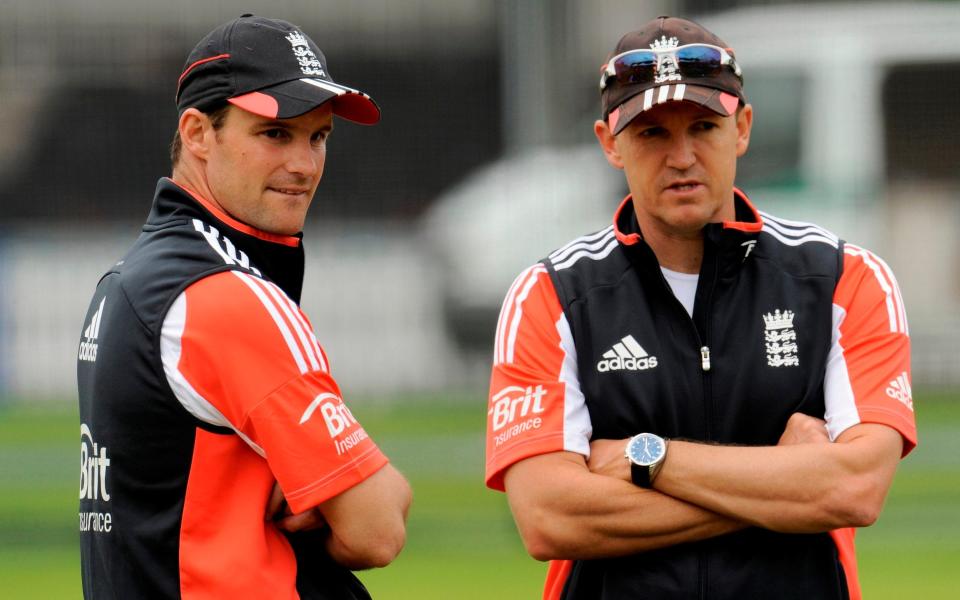
“It was very successful for us. Whether it was nearly as watchable as the cricket that we’re watching today is debatable. It’s been brilliant to watch Stokes and McCullum and this England team because something is always happening. When you take a step back and look at the bigger picture – which you don’t often do when you’re playing for England – that’s an important element in all this.
“The area of most improvement I think is being positive, being aggressive, but also understanding when you get on top, sometimes you just need to put the opposition away, and you don’t need to take massive risks. So it’s just really modifying the approach a little bit at times.”
In the short-term, Strauss has no doubt about what would be the biggest boost to England. “Wouldn’t mind Jofra Archer coming back – just that extra pace. I know Mark Wood provides that at times, but Jofra is like gold dust. Bowlers like him don’t come along very often. So if we’re able to get him playing Tests again, it would be a massive fillip.”
For now, Strauss is adjusting to his working life not being focused upon English cricket. He resigned as strategic adviser to the England and Wales Cricket Board last year, ending an involvement in the higher echelons of the game that was otherwise almost continuous since his Test debut in 2004. His only direct involvement in the sport is now as an adviser for the Indian Premier League side Rajasthan Royals.
“I’m enjoying the break, quite frankly – I probably spent too long at the top end of English cricket,” he reflects. “I loved my time there but I feel like there are times when you need to take a step back and allow other people to have a go.”
Will we see Strauss have a major role in the game again?
“I’m very happy with where I’m at at the moment,” he smiles. “Never say never.”
County game has ‘gone nowhere’ on reforms to help England team
Sir Andrew Strauss believes that England have “gone nowhere” in making the reforms to the county game that he considers essential for Test team to become the best side in the world on a regular basis.
Strauss, the former England Test captain, led the controversial high performance review in 2022 which advocated a cut from 14 County Championship games to 10, with the top division of the Championship reduced from 10 teams to six. The proposal was rejected by the counties, with members loathe to agree to a dramatic reduction in the volume of Championship matches, which were previously cut from 16 to 14 in 2017.
While praising the leadership of Ben Stokes and Brendon McCullum, England’s Test captain and head coach, Strauss still believes broader changes are needed in the English game if the side are to challenge the best teams in the world away from home. Since 2013, England have played 29 Tests in Australia or India, the two top-ranked sides in the world, losing 24 matches and winning just two.
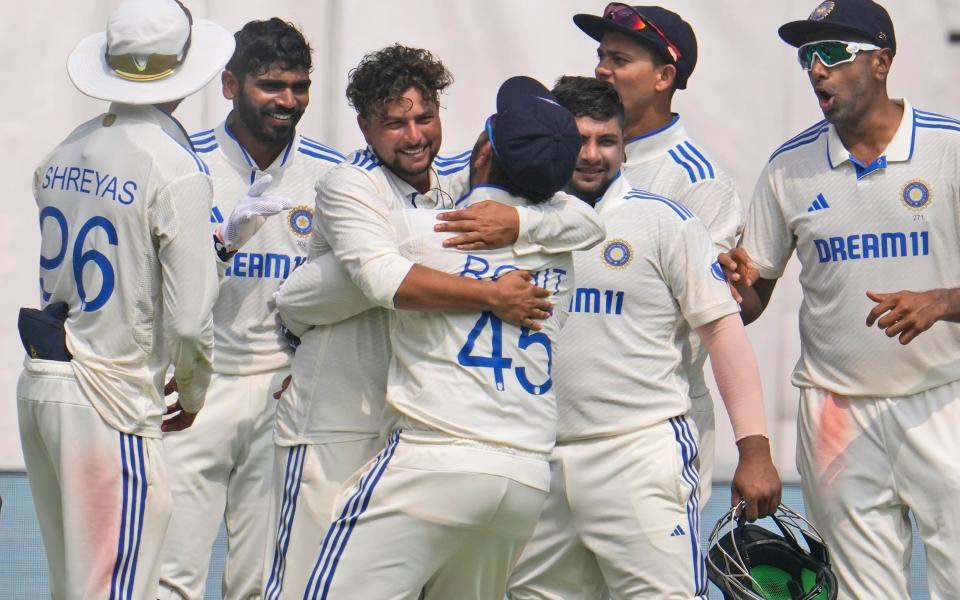
“We’ve just gone nowhere,” Strauss said. “You’re playing half your Championship games in April and May in England. So how are you preparing people to play in Australia or India? You’re just not.
“There’s certain elements of the review which have been implemented. And I think they take us a certain way towards answering the considerable issues that we have in the game. But the truth is that the game we play in first-class cricket is a different game to Test cricket, and everything in the high performance review pointed to that.
“We have an opportunity in this game to either make a decision to focus on improving the quality, the standard and the type of cricket we play in first-class cricket or just keeping things the same as they’ve been. And that’s it. That’s not for me to make that decision – that’s for the game.”
Strauss insisted that he would not have done anything differently during the high performance review, which triggered an angry backlash from county members.
“I was asked to do a high performance review to tell people what needs to happen in order to make a meaningful impact on the structure and the way that we play our cricket,” Strauss said.
“Obviously there’s frustration there on the schedule and on the structure of first-class cricket, because I don’t feel like we made any progress.
“Ultimately, it was that same situation we have over and over in English cricket, which is dual goals and aspirations. So on the one hand, I think counties do want to support the overall ambition. But secondly, they also are thinking about their own place within that. And that’s always a difficult thing for the chief execs and chairs to take members on that journey.”
Strauss firmly believes that the Hundred would benefit from private investment. He suggested that teams selling off their entire stakes to investors – rather than simply a minority share – could help to safeguard the finances of the game in England. He also warned that, without investment, the Hundred would face growing competition from other franchise leagues, including in the United States, to attract the best players in the world.

“I think it’s a worthwhile expedition for the game and one that we can’t afford not to do,” Strauss said. “A lot of counties are really struggling financially. And I suppose the Hundred is a great opportunity to underpin the game in this country – a real focus on growing that tournament, to make it the best second best short-form tournament in the world. Getting private investment in there would be a fantastic fillip for the game in this country.
“It’s not as good as it can be. And to to improve it, it does need further investment in that tournament – more than anything, to be able to get those best players in the world playing in it time and time again. And by the way, just bear in mind this is not just about growing the tournament. It is also about ensuring that our players don’t go somewhere else in the English cricket season to play short-form cricket, which might easily happen in the next couple of years.
“What I would be starting with is how do we grow this tournament and maximise that growth and what’s the best model to do that? I think there’s a danger of looking at it from it becoming a bit of a mishmash, we don’t want majority ownership, we want to keep control etc. And I think if you go down that route, what you do is you limit the ability for serious investments to come into the game.”
Sir Andrew Strauss is the Executive Chair of TTB Sport Capital who have founded the first Alfred Dunhill Padel Classic, at the Hurlingham Club on 15-16 May. The competition is being run in aid of the Laureus Sport for Good Foundation.

